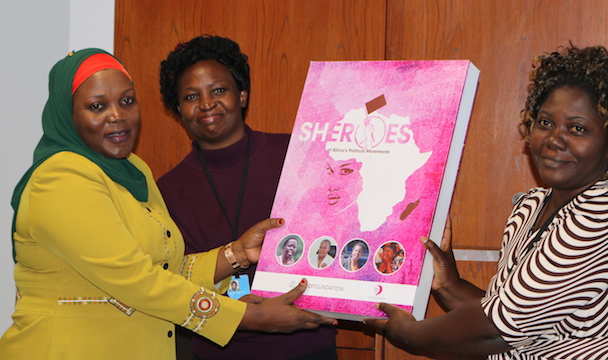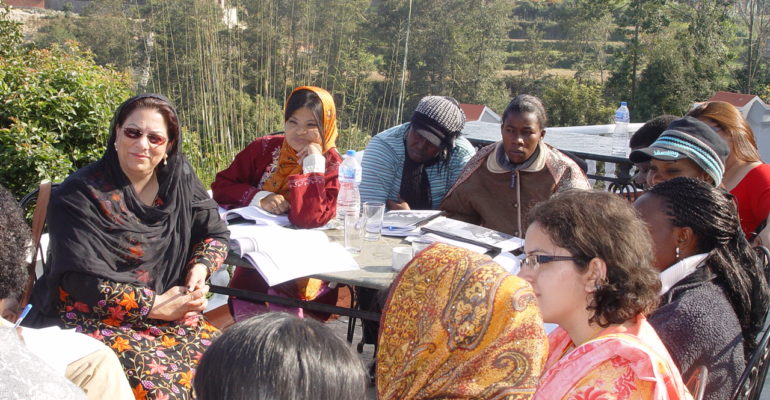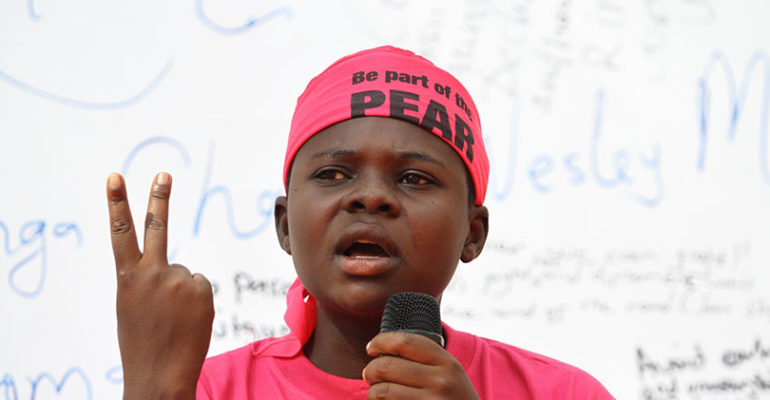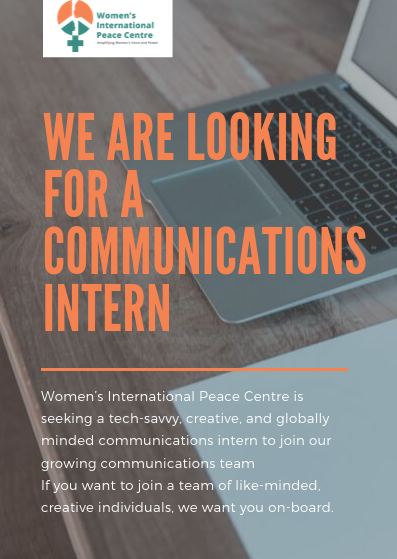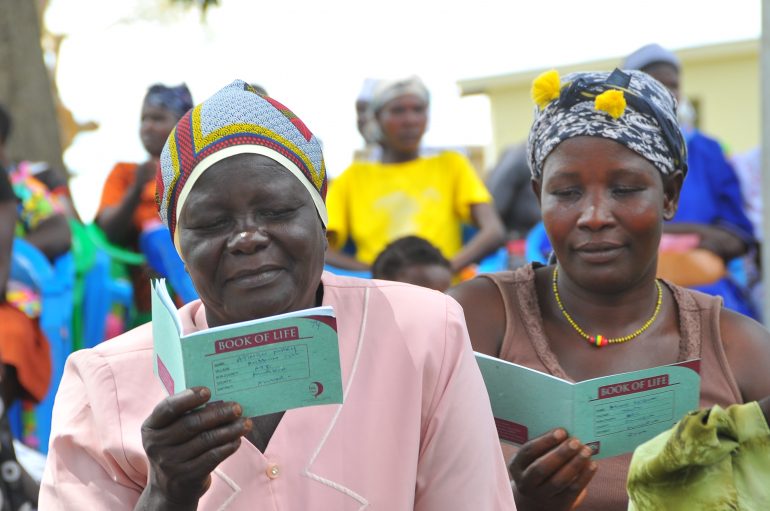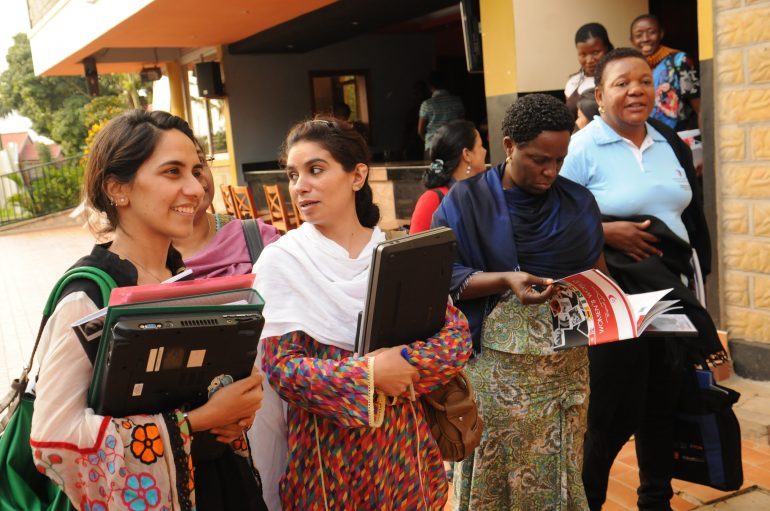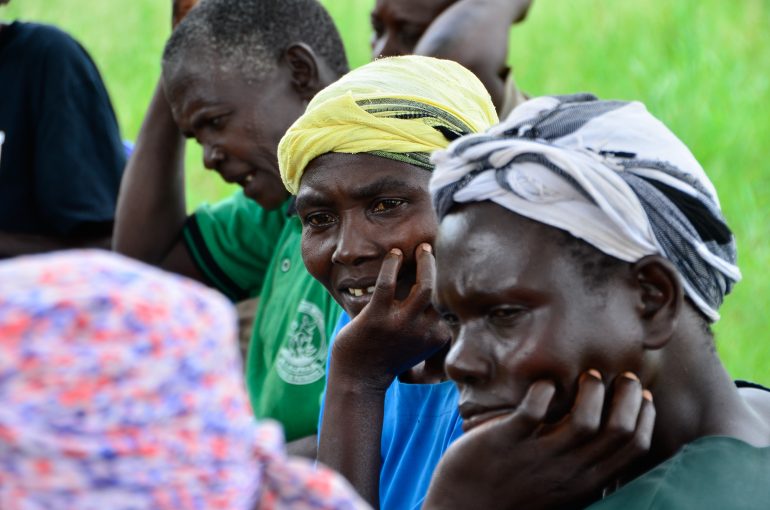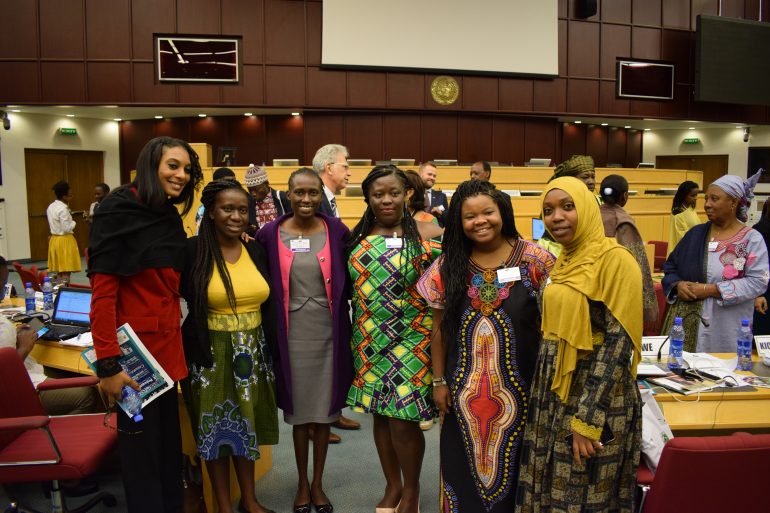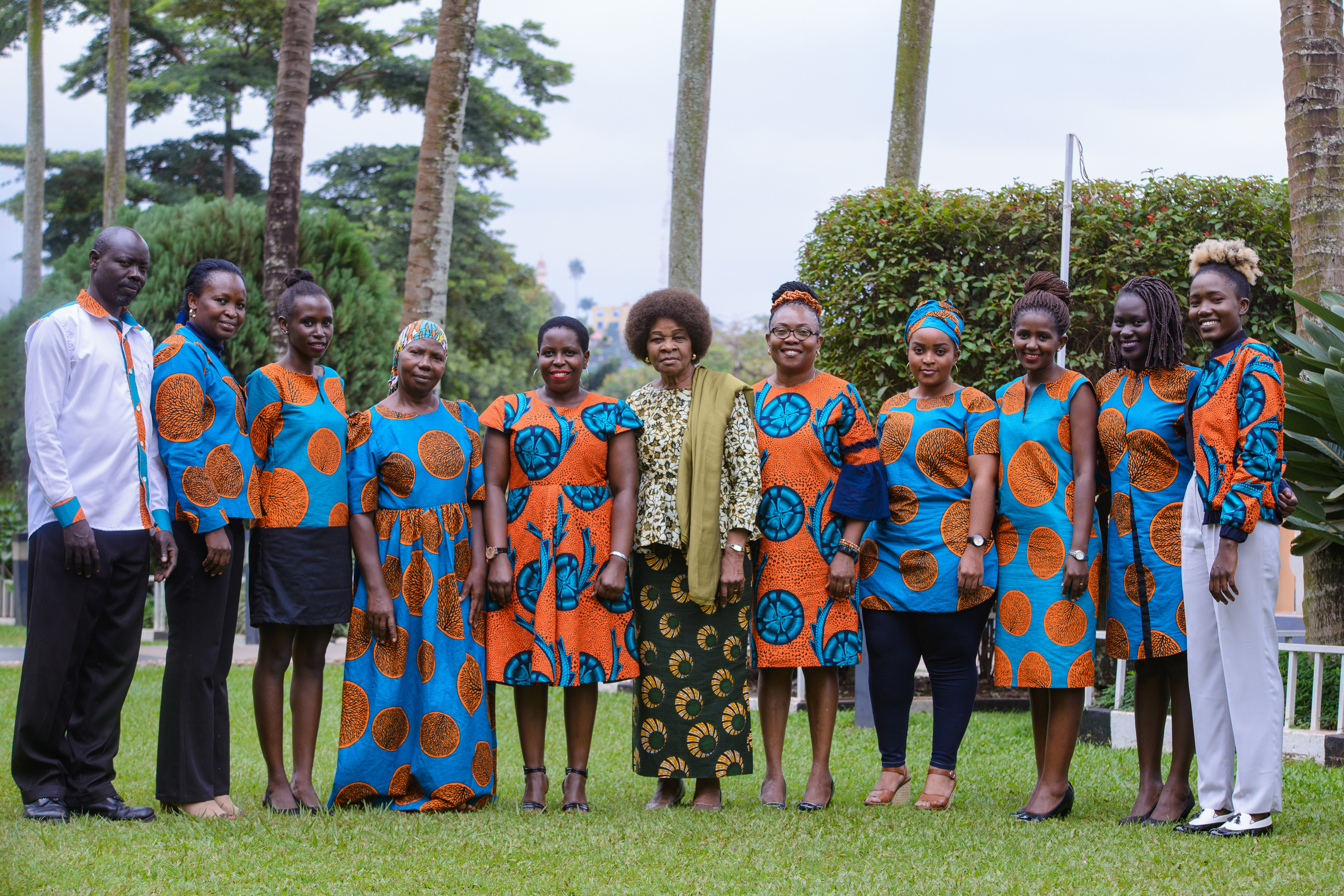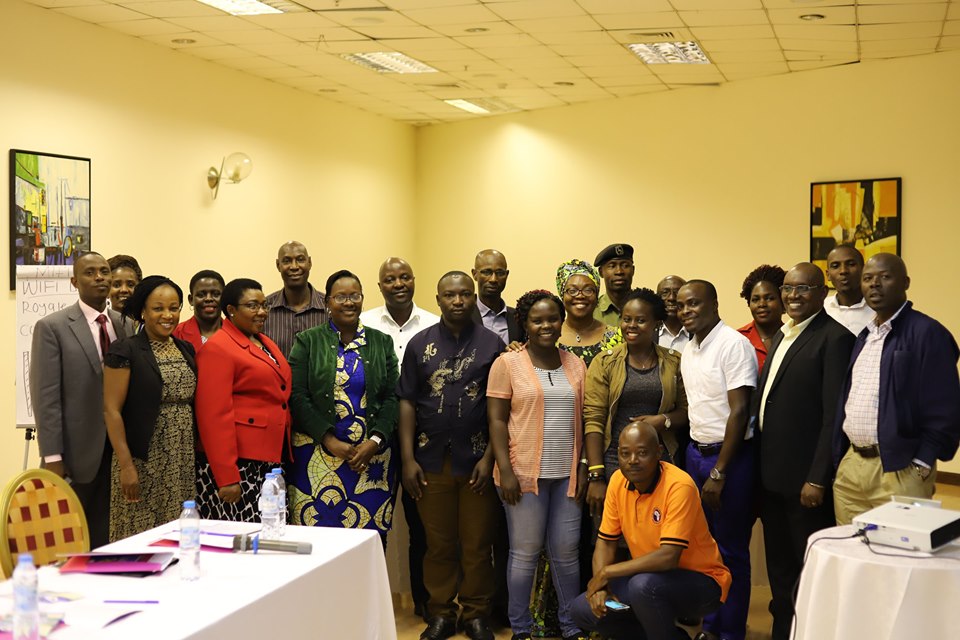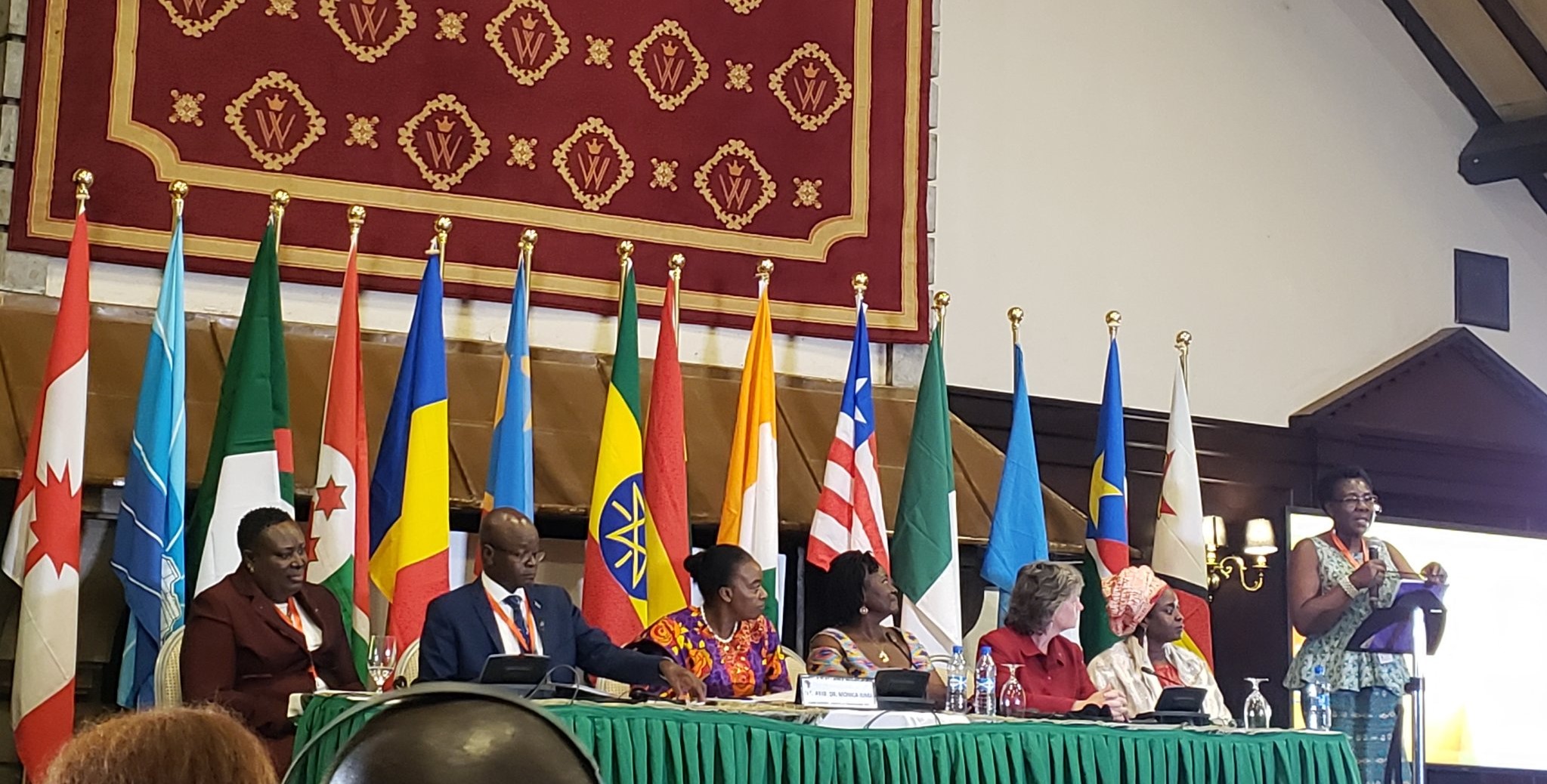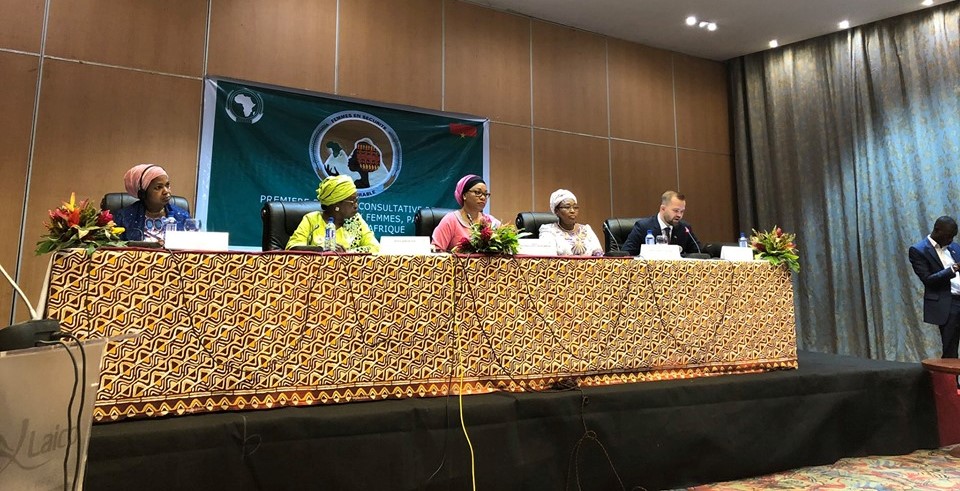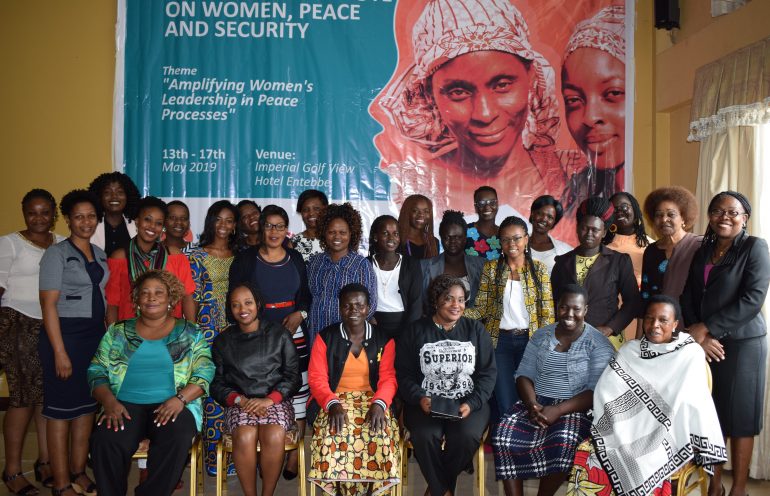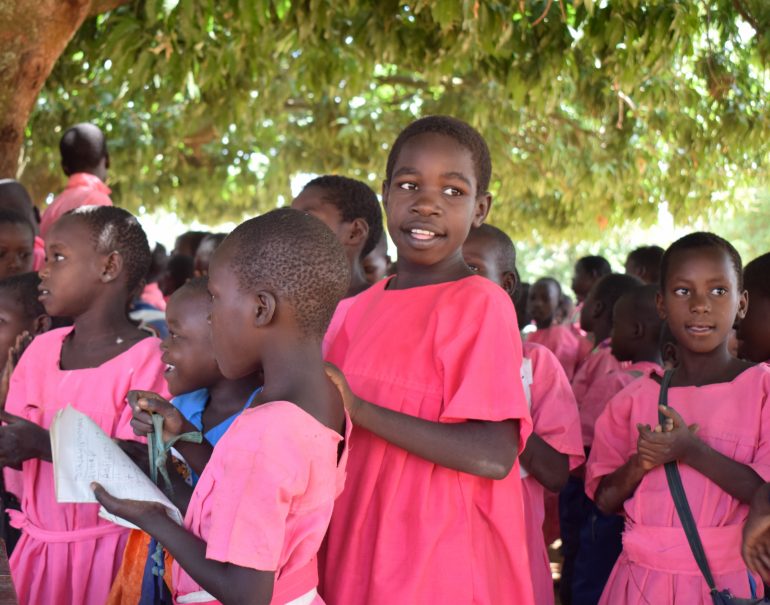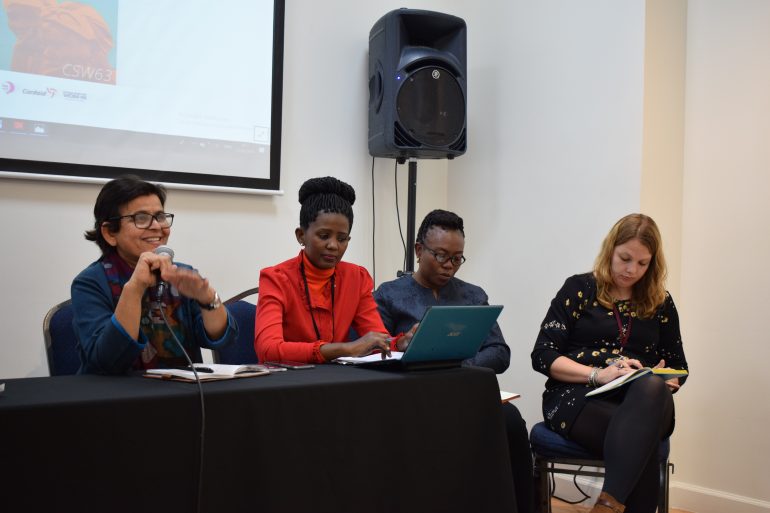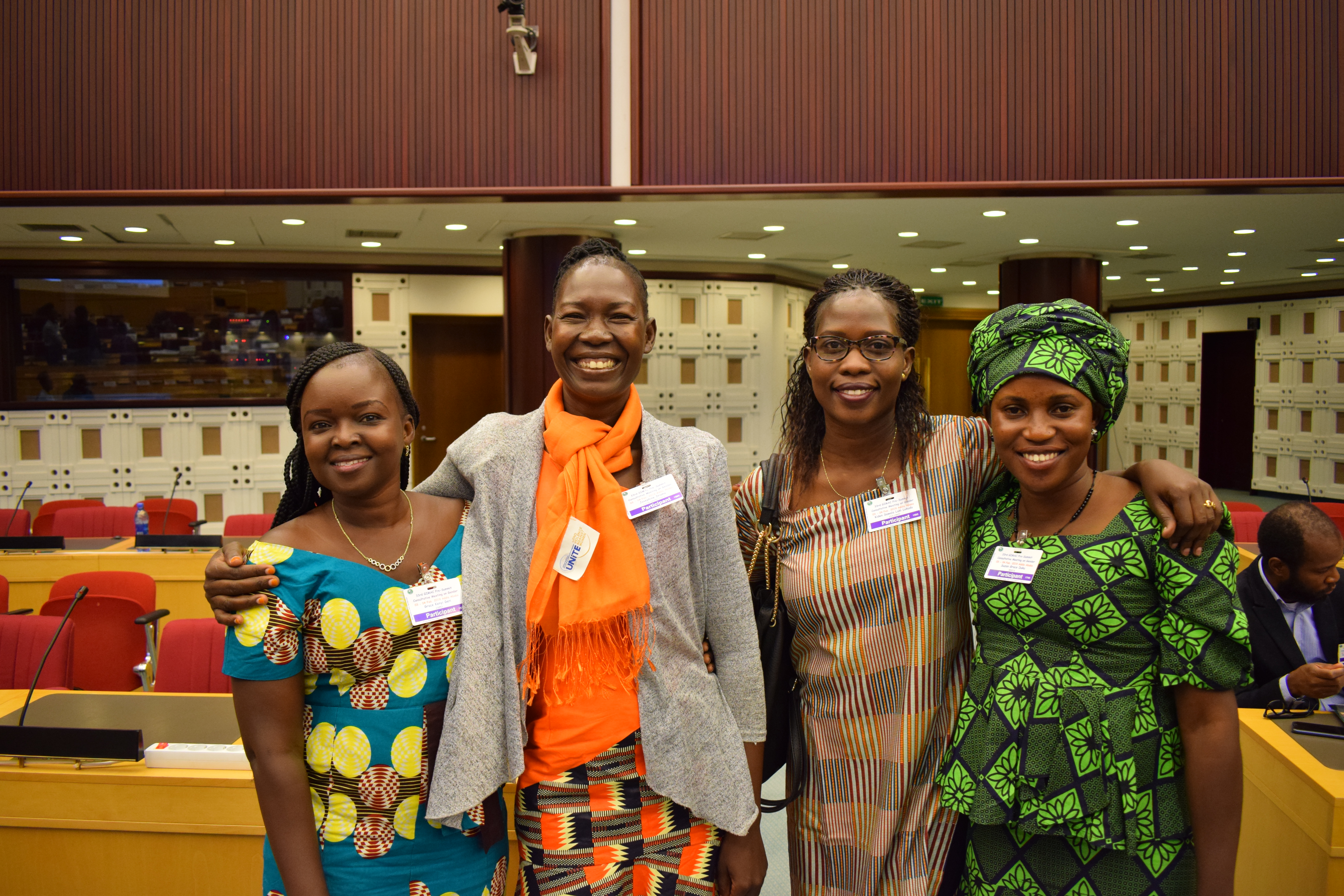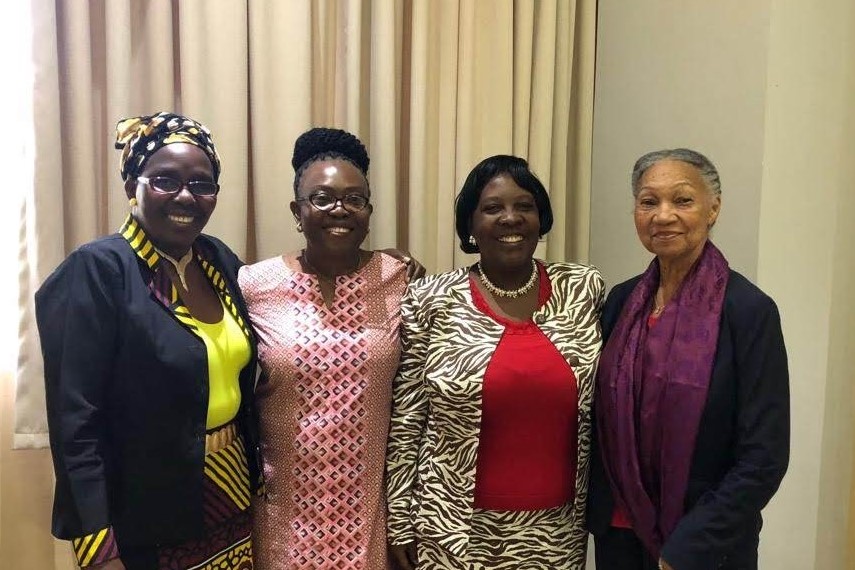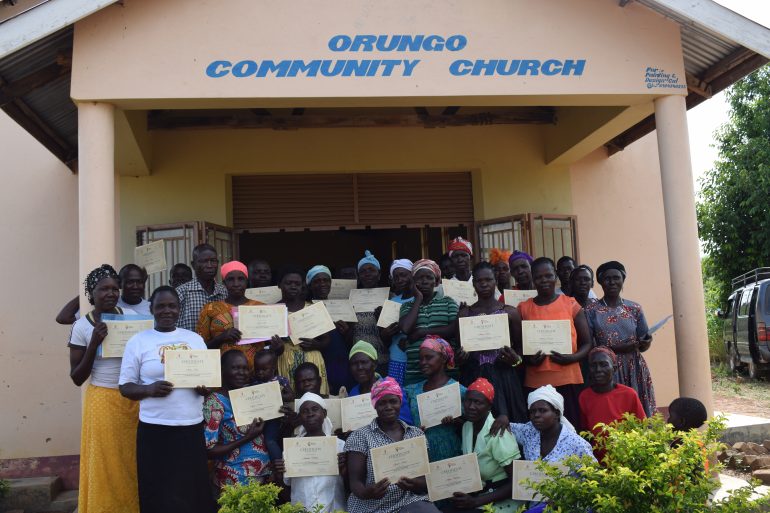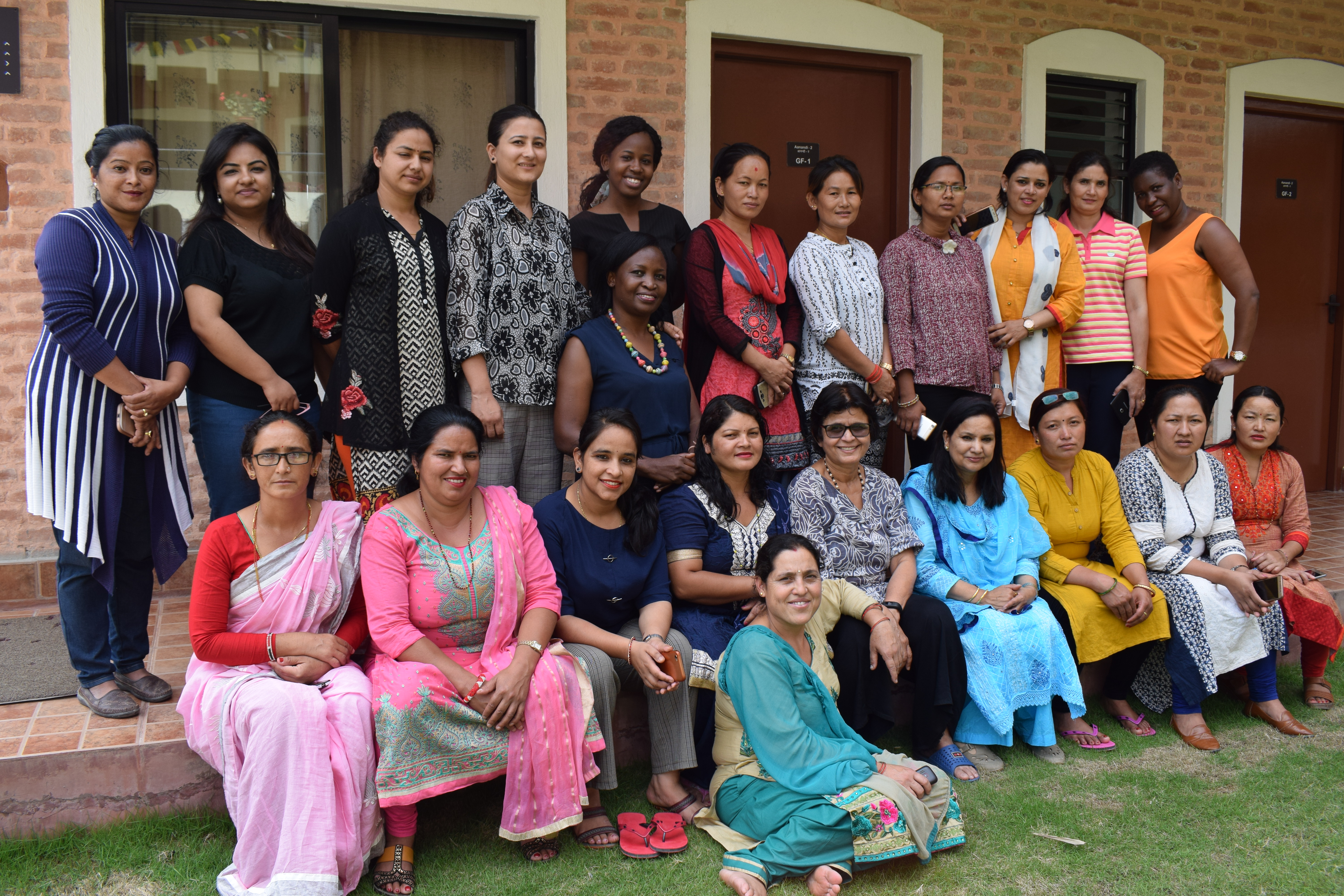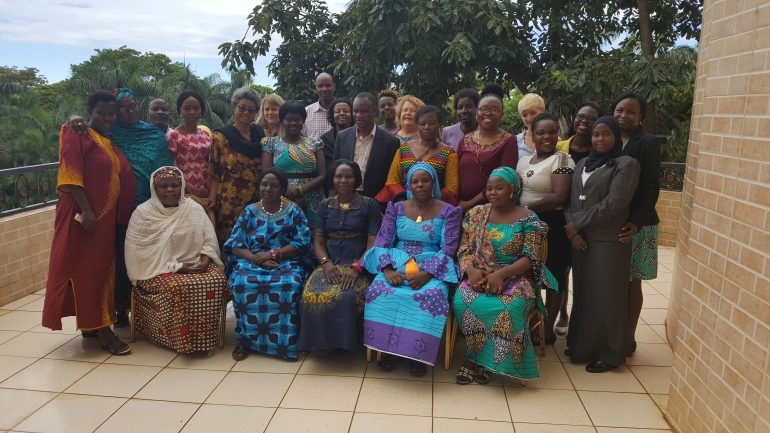Get Involved
Make a donation to support our work
Socialise with us Online
Volunteer with Us
Supporting women to more powerfully and unapologetically transform peace building processes and spaces
The Centre researches and documents the critical yet often-neglected experiences of women in situations of armed conflict globally. Since 1996, we have provided data and information on women, peace and security, highlighting human rights violations against women and women’s human rights defenders. We acknowledge that women are knowers and not merely sources of data. As such we listen to women’s voices to gain access to and amplify their insights, voices and experiences. Isis-WICCE research has been conducted in 27 countries including 15 countries in Africa (Burundi, Cameroon, Democratic Republic of Congo, Kenya, Liberia, Nigeria, Rwanda, Sierra Leone, Somalia, Somaliland, South Africa, Tanzania, Togo, Uganda and Southern Sudan) and 12 countries in Asia, Latin America and the Balkans (Albania, Azerbaijan, Bangladesh, Cambodia, Colombia, El Salvador, India, Mexico, Pakistan, Philippines, Sri-Lanka, Yugoslavia and Nepal)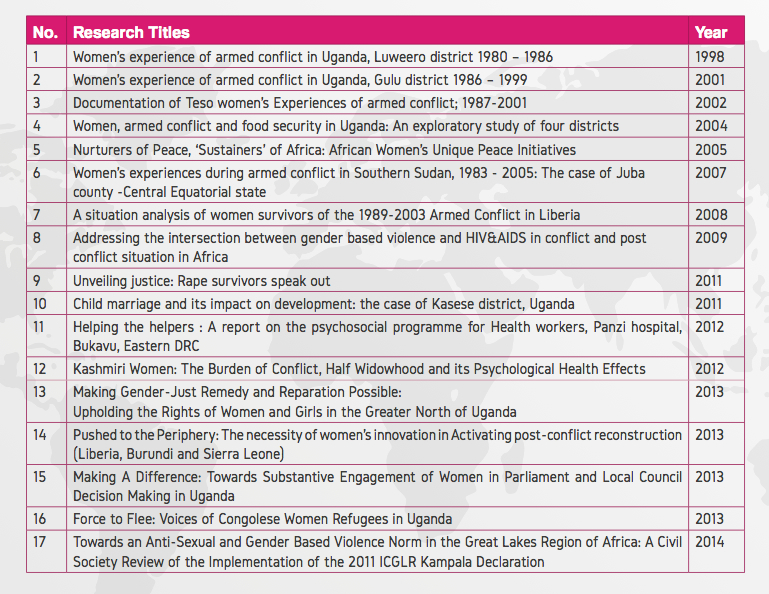
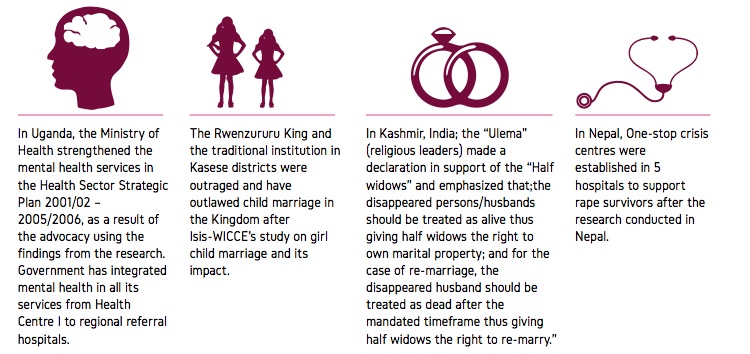
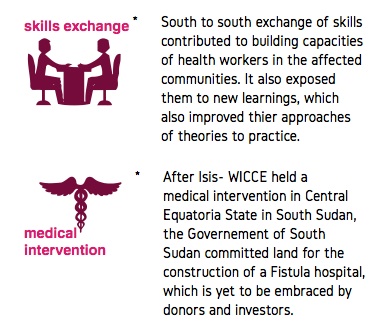
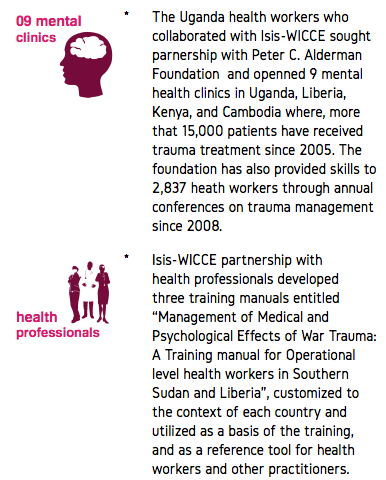
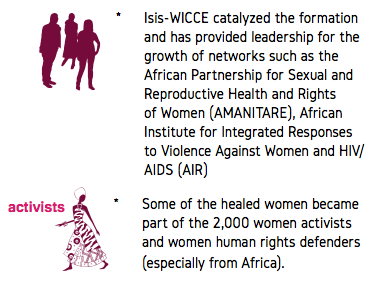
The feminist leadership institute is a safe space for women to galvanize their feminism while enhancing their leadership capacities to effectively participate in peace building and conflict resolution. We build the capacity of women as change agents in peace building and post-conflict recovery through leadership training, cross-cultural exchanges, research and ‘giving back to the community’ initiatives. The institute addresses the deficit of women’s leadership in armed and post-conflict settings, by building a vanguard of women leaders with skills and knowledge to respond to conflict dynamics, sexual and gender-based violence as well as challenging structures that undermine women’s rights. Since 1984, the institute has reached over 1500 women leaders from Africa, Asia, Latin America and the Balkans. Through educative cross-cultural exchanges, training seminars, solidarity visits and think tanks, a multiplicity of feminists, leaders and change agents share knowledge, critique existing policies, leadership and structures to design and apply approaches for social change. Women leaders have exchanged ideas, learnt from each other, and adopted cross-cultural strategies and solidarity actions to address a wide range of women’s issues while giving back to their communities. Institute alumnae have conducted research to conduct evidence-based advocacy to influence policies, programmes and action in response to women’s identified concerns. Some of the alumnae’s efforts as part of the institute include hosting war victims’ burials for community healing and closure; conducting medical camps to address sexual and reproductive health issues; trauma counseling; supporting local livelihood enhancement efforts; creating community based organisations to effect local peace building activities, conducting policy advocacy and creating unique tools such as videos, as aids. The institute works towards building and contributing to a global movement of women peace activists. Since 1984 institute has reached over 1,800 women leaders from Africa, Asia, Latin America and the Balkans , building a vanguard of skilled and knowledgeable women leaders contributing to a global movement of women peace activists. Through educative cross-cultural exchanges, training seminars, solidarity visits and think tanks, a multiplicity of feminists, leaders and change agents share knowledge; conduct research; critique existing policies, leadership and structures. 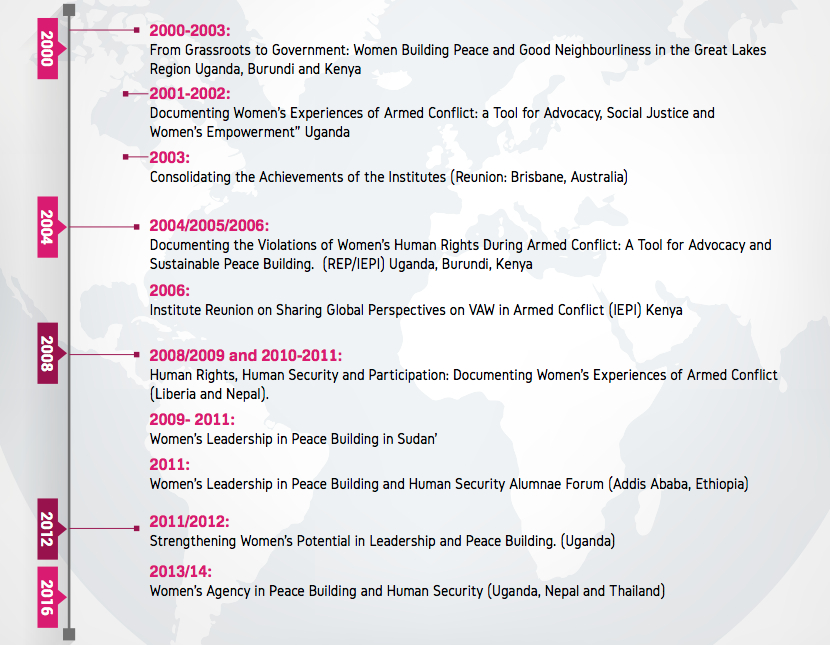
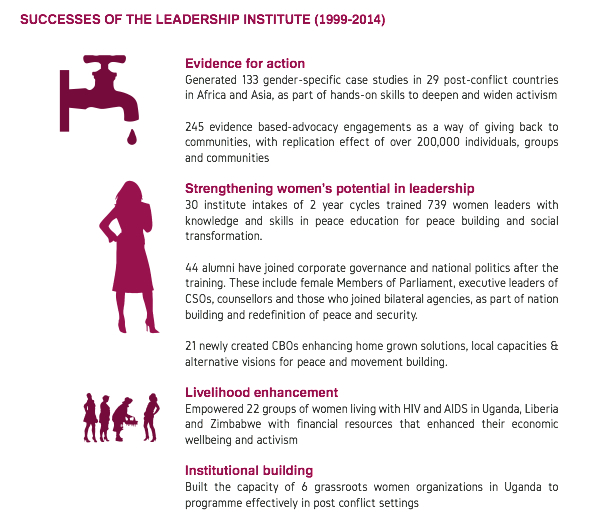
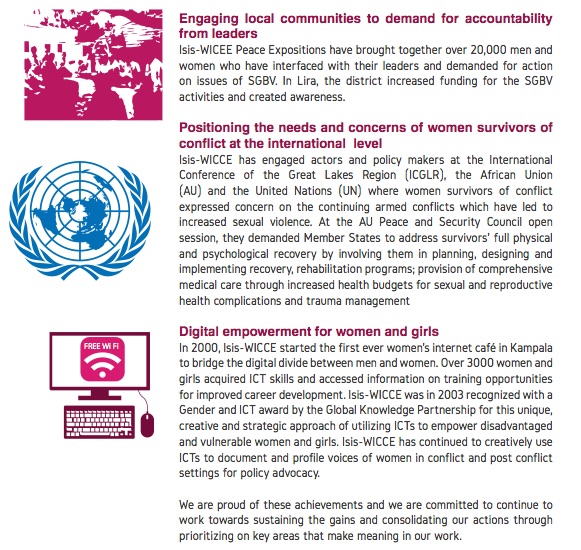
Through communication and knowledge management, The Centre, formerly Isis-WICCE seeks to inform and influence global discourse on gender, peace and security, serving as a vital resource hub and reference point for policy makers, activists, academia, civil society, ordinary women and men to effect gender-responsive social change. We prioritise sharing information and communicating directly to decision-makers as well as a diverse set of individuals shaping women’s lives at local, national, regional and international levels. Through this, The Centre contributes to building an informed wave of world leaders who respect gender diversity and uphold women’s rights. Visit our Blog for Regular News, Stories and Information Resources Connect with us on Social Media Sign up for Email Updates
Deadline; 30th March
Women’s International Peace Centre is seeking a tech-savvy, creative, and globally-minded communications intern to join our growing communications team. Gain experience in communications at an international feminist organization and take part in amplifying women’s voices and power in peacebuilding across the globe.
Women’s International Peace Centre is a feminist organization, currently working within conflict and post-conflict countries in Asia and Africa. Our mission is to ignite women’s leadership, amplify their voices, and deepen their activism in re-creating peace. We use our home-grown approach to put women’s rights issues on the political agenda; amplify women’s voices; and catalyze women’s power to transform themselves, their communities and countries in conflict and post-conflict.
Our work includes;
Role and Responsibilities:
Your duties will include
Interested applicants should send a cover letter and CV to procurement@wipc.org by 30th September 2019
The week in Women, Peace, and Security
The new code of conduct, outlined in the African Union Policy on Prevention and Response to Sexual Exploitation and Abuse for Peace Support Operations, prioritizes the elimination of all forms of gender-based violence and puts peacekeeping operations at the forefront of ensuring justice and the protection of vulnerable populations.
United Nations Mission in South Sudan (UNMISS) hands over a Women’s Rehabilitation centre to a local women’s group in Wau to help empower them politically and economically.
The Southern African Development Community Regional Strategy on Women, Peace and Security (2018-2022) publication is launched demonstrating its commitment towards political stability, sustainable peace, security, and good governance.
UN Women announces the “Beijing+25 Youth Task Force”, comprising of 30 young leaders from different youth-led and youth-serving organizations, with diverse areas of expertise and from all regions of the world.
Kayan Women’s Organization (KyWO) is helping to upgrade the role that women from Karenni areas play in peace and politics, and support the peace process through State-level contributions
Five new informative policy documents and strategies presenting issues ranging from energy to infrastructure to gender, and monitor progress on regional integration in southern Africa are launched ahead of the Southern African Development Community (SADC) Summit.
The future of women leaders in Afghanistan; It is only when the institutional structures change in Afghanistan, when there are structural changes on a macro and micro level, can the status of women leaders shift from symbols to real people.
Nepali Women’s rights activists, government officials, and stakeholders stress the need for a consolidated progress report to be presented in multiple UN forums.
Afghan women make it clear they want peace without oppression
The Open Letter to the Group of Friends of 1325 calls on governments to accelerate commitments on Women, Peace and Security as part of their work on sustainable development, including on gender equality and peaceful and inclusive societies.
This letter is in advance of the 24th-25th September SDG Summit, which will also launch the 2019-2020 High-Level Political Forum (HLPF) Review Process and where
Download;
Press Release
Open Letter
The week in Women, Peace and Security
Writing for the Global Observatory, Jamie Hagen has considered the future of LGBTQ human rights in the context of the Women, Peace and Security agenda.
Women are working to make inroads as mediators and advocates in a number of conflicts elsewhere despite the July meeting between US President Donald Trump and Pakistani leaders excluding women and Trump’s signing of the US Women, Peace and Security Act of 2017.
A book by Patricia Wall, Our women on the ground, delves into the stories of 19 Arab and Middle Eastern female journalists.
The London School of Economics’ Middle East Centre releases a short video on the nexus between displacement and the Women, Peace and Security agenda.
The United Nations–African Union peacekeeping mission in Sudan’s Darfur region—launches a public awareness campaign on the ‘elimination of sexual violence in conflict’.
Women leaders in Kenya demand for 50 per cent of all State and public office jobs following the 50:50 gender rule.
The need for a gendered approach to countering violent extremism.
Under Secretary of State for Political Affairs David Hale meets with Sudanese women and youth leaders urging them to continue their persistent and peaceful engagement.
Susan Sebit calls for young women’s inclusion in peacebuilding in South Sudan.
In an interview with the European Peacebuilding Liaison Office, Ghalia Sassi discusses her experience as a mediator in Libya and suggests ways in which women mediators can be better supported.
Subscribe to receive these updates in your mailbox.
The week in Women, Peace and Security
Women Around the World and Women and Foreign Policy Program call for a feminist approach to humanitarian support
Girls at Dhabas a local feminist collective advocating gender equality in the public sphere organize a women centric march against violence
South Africa set to adopt a National Action Plan on Women, Peace and Security
PRIO Researchers contribute to a new book on Women, Peace and Security in Myanmar.
National Task Force to End Sexual and Domestic Violence are calling for gun control.
Press Statement of the Peace and Security Council of the African Union at its 862nd meeting to an open session on the theme: “Sexual Violence in Armed Conflicts in Africa”
The Trump administration leads in elevating women in peacebuilding processes the world with a Women, Peace and Security (WPS) comprehensive law (2017) and strategy (2019)
South Africa to promote women’s role in peace and security at the UN.
Negotiations with the Taliban must include Afghan women to protect their progress and build a sustainable peace.
Subscribe to receive these updates in your mailbox.
Happy New Month!
This week we share news, resources and opportunities for women, peace and security globally.
The Secretary-General’s Envoy on Youth addresses the need to promote an environment that recognizes young people’s important and positive contributions to peace and security, while creating safe spaces and expanding opportunities for young people.
Ms. Anna Mutavati, the Deputy Representative UN Women in Uganda urges the government to increase the engagement of women in peace negotiations in conflicts while speaking at Women Peace and Security Programme workshop
The African Union Commission (AUC) and the United Nations Office to the African Union (UNOAU) call for nominations of African women who have exceptionally advanced the women, peace and security agenda in Africa. The women will be featured in an upcoming commemorative book set to be launched in year 2020.
The UN deputy chief issues an impassioned plea on 21st July for Afghans to reconcile with the past and put “women at the centre” of all efforts to forge a durable peace, and a truly inclusive political process where women’s voices are truly heard.
The role of young women as advocates of peace and security in Palestine is being strengthened through implementation of the Interpeace and Freedom Theatre project through creativity and art.
Special Representative of the Secretary-General on Sexual Violence in Conflict addresses the African Union Peace and Security Council on ending sexual violence in conflict.
Refugee women could generate up to $1.4 trillion to annual global GDP if employment and wage gaps were closed according to a new analysis conducted by the Georgetown Institute for Women, Peace and Security (GIWPS), in collaboration with the International Rescue Committee (IRC).
Subscribe to receive these updates in your mailbox.
45 years into our journey of amplifying women’s voice and power, we are pleased to share that Isis-Women’s International Cross-Cultural Exchange (Isis-WICCE) is NOW to Women’s International Peace Centre (The Centre).
Isis-WICCE –named after the Egyptian goddess of wisdom and justice- started out in 1974 as a global women’s resource centre documenting and disseminating women’s ideas, concerns and experiences with the aim of ending gender inequality. This organically resulted into physical cross-cultural exchanges, bringing together women human rights defenders from diverse countries to discuss topical gender equality issues, share experiences and strategies to dismantle patriarchy and advance women’s empowerment across the globe.
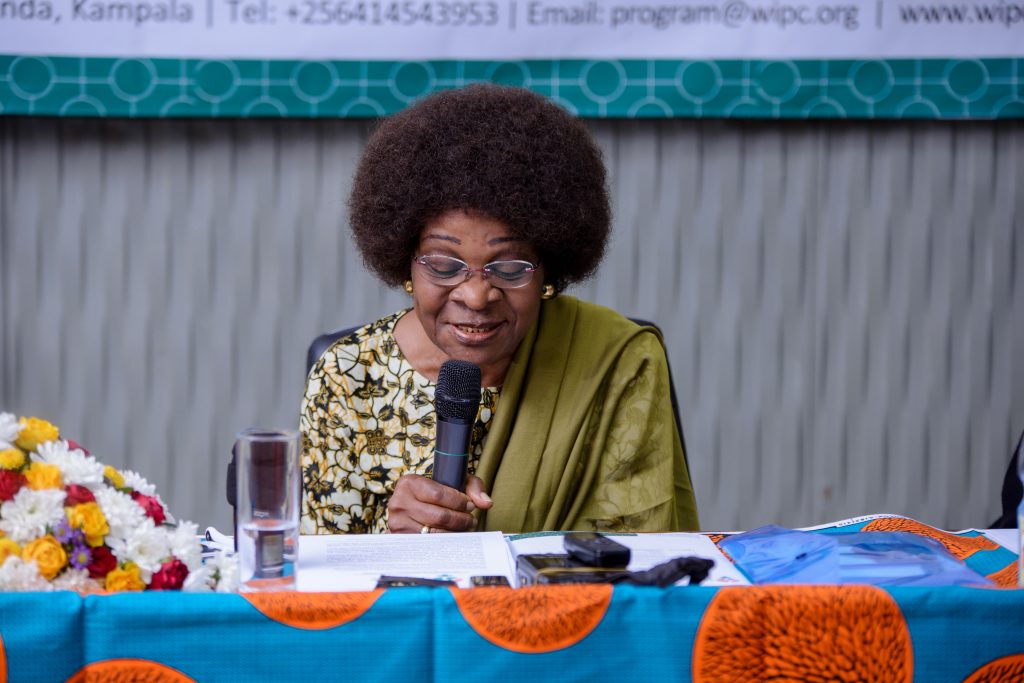
With the move to Uganda in 1994, the organisation carved out its niche with a focus on women, peace and security. The international cross-cultural exchange morphed into the feminist leadership institute on peace building and human security; the resource centre focused on conducting research and generating feminist knowledge on women’s experiences and specific needs in conflict and post-conflict which also formed the evidence base for women’s advocacy for peace and gender-responsive post-conflict recovery in 27 countries.
Isis-WICCE also focused on healing women war survivors – addressing their psychological, physical and gynaecological needs – and mentoring women leaders and women’s groups to continue their
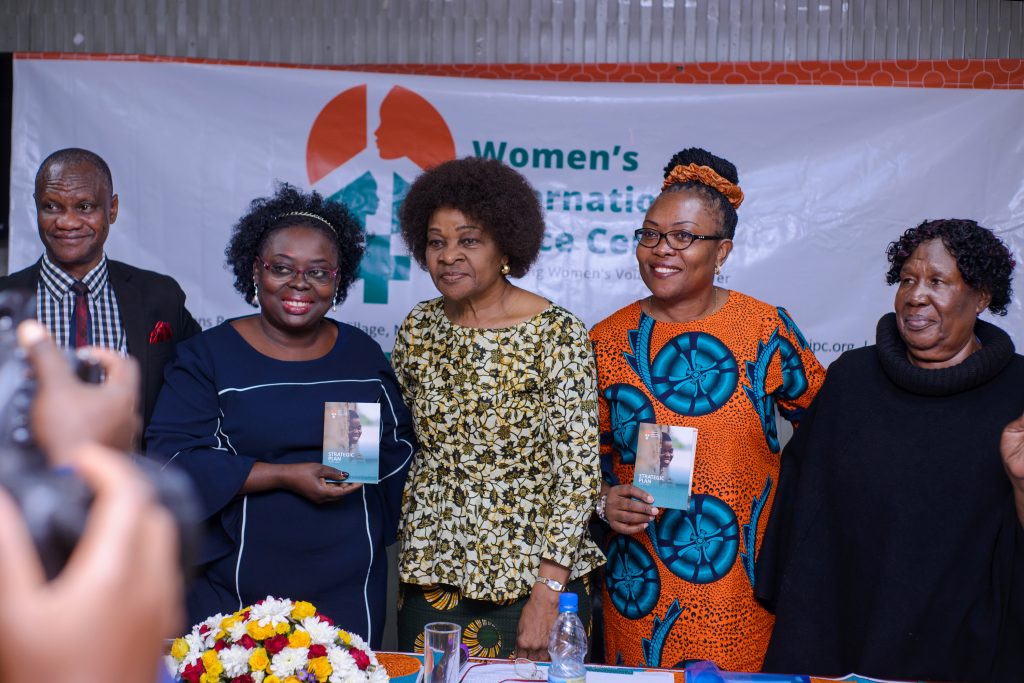
The new name Women’s International Peace Centre reflects our commitment to
Elections are an important mechanism in democratic and peace processes as they provide citizens with an opportunity to choose freely their political leaders and allocate power peacefully. However, underlying tensions in a society and high-stake competition can also result in violent and fraudulous elections. Based on its mandate in peacebuilding, Women’s International Peace Centre with support from Kingdom of Belgium are implementing a 2yr project “Promoting Peaceful Electoral Processes in Uganda through Constructive Engagements” in the districts of Kampala, Lira, Soroti, Luweero and Rukungiri.
Inception meetings were held to introduce the Districts to the project. The project aims to reduce violence and conflict in the electoral processes by;
The Centre will conduct research on Election Violence in Arua, Soroti, Rukungiri and Kampala District, design training materials, train 50 youth peer educators and 50 women peace advocates in trainers, hold Youth dialogues & debates establishing of youth peace committees to mitigate conflict during the electoral processes.
Crises and Conflict directly derails education, yet it is education that is a catalysis towards renascence of Africa. The number and intensity of violent conflicts has increased in the past decade and Africa has not been an exception. In 2017 Africa experienced 18 state-based conflicts, a decrease from 21 in 2016, though the continent experienced a significant increase in non-state conflict; and the denominator is that girls and women bear the greatest human casualties. Based on the high population of girls and women affected by these conflicts, it is important that conversations majoring on education are focused towards actualization of education right during and post conflict periods. It is known that existing power dynamics and inequalities are amplified during conflicts, educational gains lost, social fabric torn, and thus jeopardizing the achievements of the continent’s Agenda 2063.
There is need to deliberate, understand and exchange ideas on policies, legislation, plans, financing and monitoring reforms within the education continuum while being cognizant of conflict situations in Africa. It is within this context that The Centre joined the Government of Kenya, the Canadian Government in collaboration with the Office of Special envoy of chairperson for African Union Commission of Women Peace & Security, and the Forum for African Women Educationalist (FAWE) in a one day conference focusing on girls and women’s access to education in conflict and post conflict situations in Africa and review existing implementation mechanisms by governments, CSOs and education stakeholders to harmonize execution, strengthen synergy and alignment to regional, continental and global educational frameworks.
The conference recommendations will contribute to the outcome document to be presented as African position on girls and women education in conflict during the Women Deliver conference in Canada in June 2019. The outcome of these deliberations will lead to formulation of policies for the continental position paper on girls and women education in conflict to be tabled at the African Union next Ordinary Session for endorsement and also inform the framework that the Office of African Union Special Envoy Women Peace & Security is currently adapting towards advocacy on education for girls and women in conflict, guide various government implementation strategies in conflict education as well as inform FAWE and other CSOs working education in conflict in Africa.
The #EducationInConflict conversation was held at Windsor Golf and Country Hotel in Nairobi Kenya, on 22nd May 2019 bringing representation from Government of Kenya, Government of Canada, African Union, all 33 countries where FAWE has presence, government representation from countries who are / have been faced directly /indirectly by conflict, within the past decade, civil society under GIMAC, the academia and experts in education in emergencies.
On 16th May 2018, the Peace and Security Council of the African Union Commission adopted the Continental Results Framework (CRF) that aims to accelerate delivery on commitments made over years by Member States, Regional Economic Communities (RECs) and other stakeholders on Women, Peace and Security Agenda. And 18yrs after the adoption of UN Security Council Resolution 1325 that anchored the important role of women in the prevention and resolution of conflicts, and despite the existence of numerous instruments at the Global, Continental and National Levels, women’s role and leadership in peace and security processes on the African continent remains marginal.
Efforts to ensure that the voices of women are heard and taken into consideration in conflict prevention and peacebuilding includes the establishment of Regional Women, Peace and Security Forums in various parts of Africa. Recent efforts to strengthen the leadership of women in Africa include the creation of a Network of African Women Mediators (FemWise) and the establishment of an African Women Leaders Network (AWLN), as vehicles for women leaders in various areas to contribute to the transformation of Africa, in line with Africa Agenda 2063.
Building on these initiatives, the Office of the Special Envoy of the Chairperson of the African Union Commission (AUC) convened a consultative meeting of Regional Women Peace Forums in Africa, Regional Economic Communities(RECs), Centres of Excellence on Women, Peace and Security and other Networks, in partnership with the Women’s International Peace Centre with the aim to establish an informal platform that provides space to share experiences and explore ways to speak with a united voice, advocating for women leadership in peace processes and delivery on commitments across the continent, using the Continental Results Framework and other adopted regional instruments. The meeting also provided women of Africa with an opportunity to join hands and examine profoundly their role in silencing the guns, as a path to bring lasting peace to the continent. The year 2020 marks also the 20th anniversary of UNSCR1325 that constitutes the bedrock of the Women, Peace and Security Agenda. The Forum provided an opportunity to review the implementation of UNSCR1325 in the region and identify priority areas towards 1325 at 20 years.
As one of the leading actors on Women, Peace and Security, Women’s International Peace Centre prioritises strengthening and re-igniting women’s leadership potential to build peace because women and girls bear the burden of armed conflict and war. The periods of transition from conflict to peace offer opportunities for women to participate in the rebuilding and reshaping of societies. However, to enable women maintain the momentum required in the different spaces of engagement, they require specialized skills and a support network. The 2019 5-day WIPC Leadership Institute focused on 20 vibrant women leaders from South Sudan, Burundi and Democratic Republic of Congo (DRC) including refugee women leaders living in Uganda. These countries assented to the UN Security Council Resolution 1325 and have developed National Action Plans for its implementation.
The training focused on three modules; Feminism, Peace and Security, understanding peace building processes and personal wellness and selfcare.
1. Feminism, Peace and Security facilitated by Dr. Tabitha Mulyampiti focused on the gender and feminist analysis of conflict and peace building and introduced feminist conflict analysis tools that enabled the participants to apply feminist principles to particular conflict situations at personal, community and government levels. Participants were introduced to ‘gender’ as an integral concept that shapes the understanding of peace/war making connections between gender, conflict, peace and security. Participants reflected on their experiences of being gendered as women and how this has shaped their experiences of ‘peace’/safety/security.
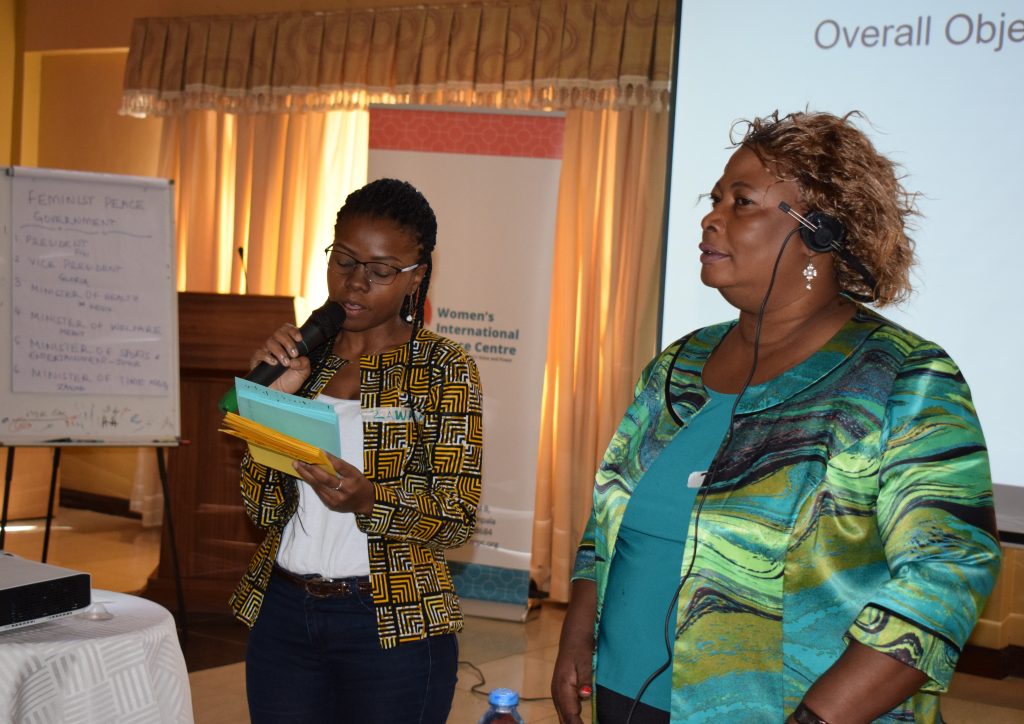
2. Understanding Peace Building Processes; This module was facilitated by Helen Kezie-Nwoha who introduced participants to informal peace processes, advocacy providing participants with skills to engage and influence peace processes at national, regional, and global level.
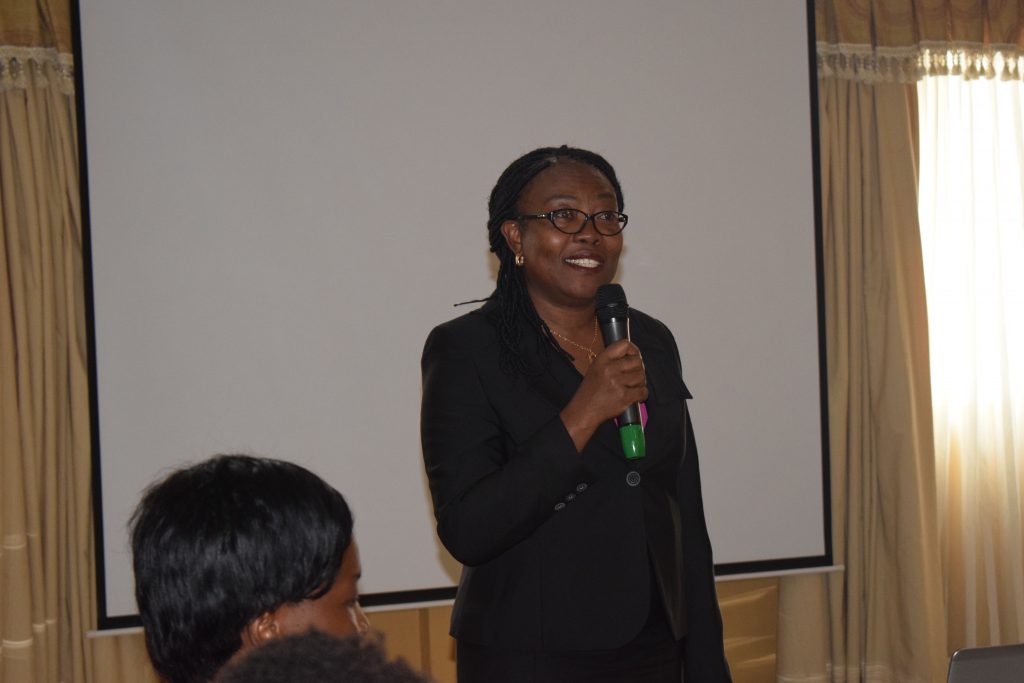
3. Personal Wellness and Self-care
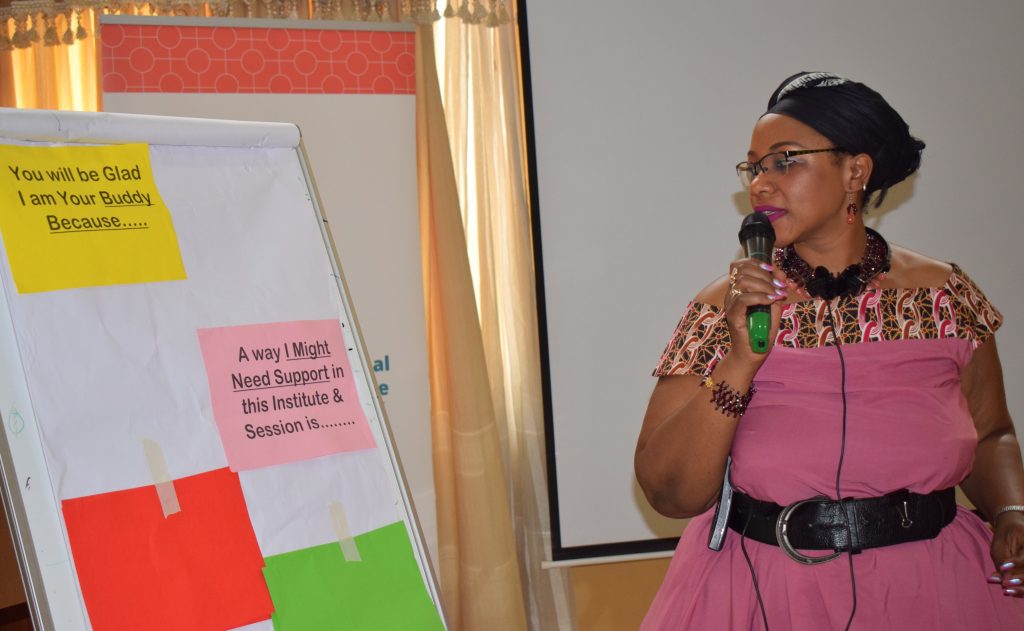
Leadership in contexts of conflict and peace negotiation processes is often challenging and can result to burnout and fatigue. During the training, It was important that these vibrant women understand that their passion for peacebuilding, Leadership and activism should not be at the expense of their personal health and fun. Sessions of Wellness and Self Care were practiced throughout the training. Our wellness facilitator Solome Nakaweesi provided Participants with simple tools they can use for their own self-care such as wellness journaling. A beautiful and strong web of sisterhood was weaved during the 5 days
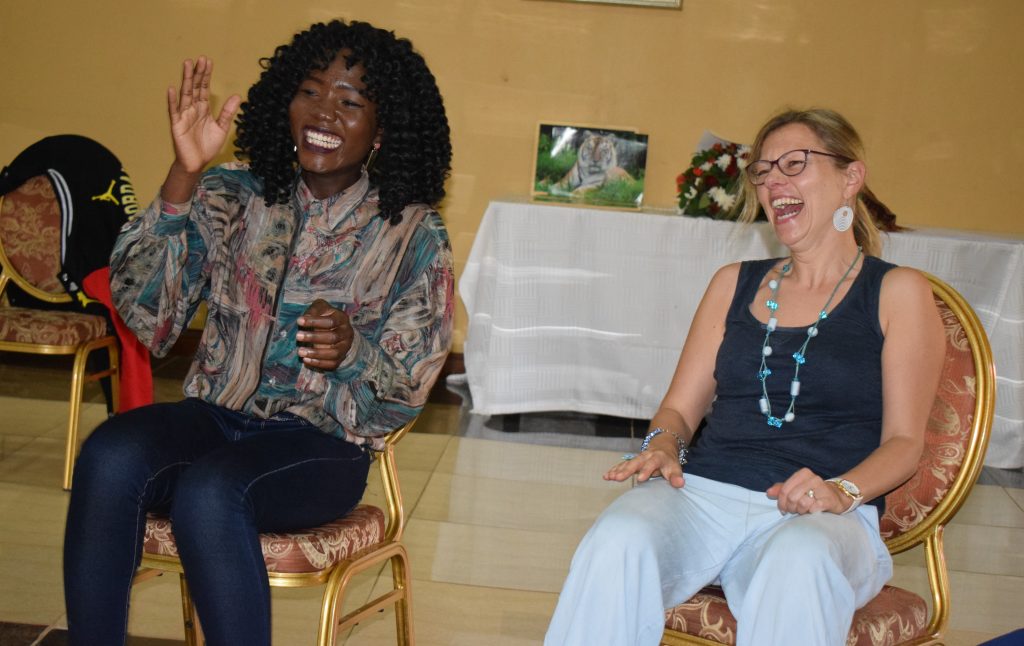
After the 5 days training, participants developed action plans that they would implement in their home countries.Our role is to ensure that women are at the center and the provisions of the agreement and the mandated structures work towards the desired peace in South Sudan, DRC, Burundi and Uganda
Follow the conversation using #FeministPeace on our social media.
For millions of young people around the world, the onset of adolescence brings not only changes to their bodies but also new vulnerabilities to human rights abuses, particularly in the arenas of sexuality, marriage and childbearing.
Millions of girls are coerced into unwanted sex or marriage, putting them at risk of unwanted pregnancies, unsafe abortions, sexually transmitted infections (STIs) including HIV, and dangerous childbirth. Yet too many adolescents face barriers to reproductive health information and care. Even those able to find accurate information about their health and rights may be unable to access the services needed to protect their health.
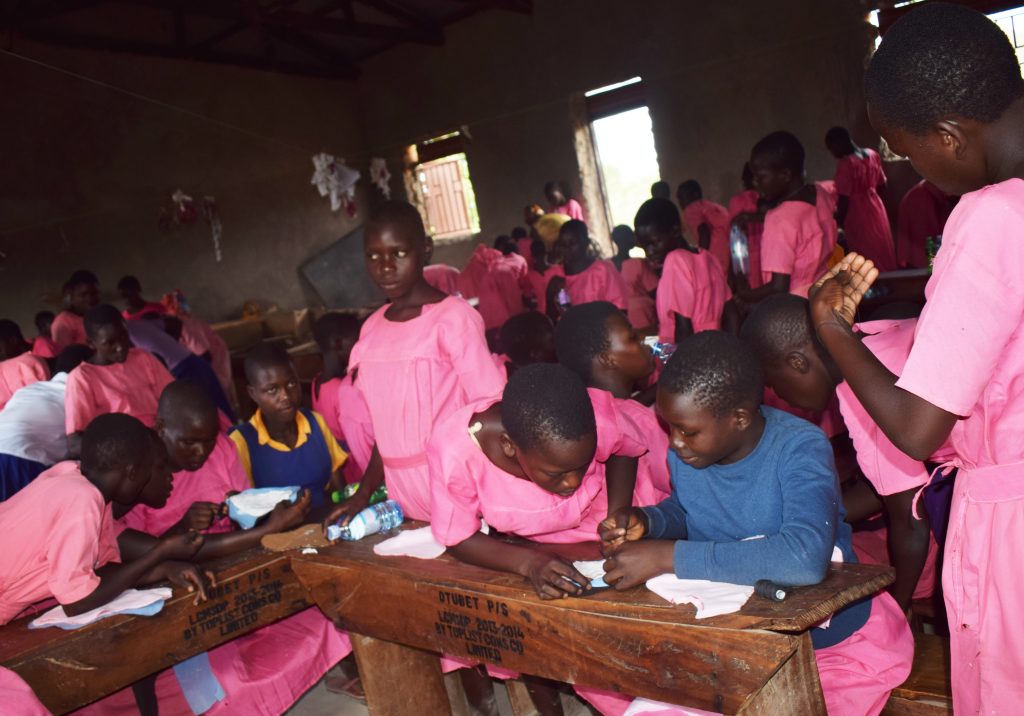
In partnership with Akwenyutu People Living with HIV&AIDS (APHAS), we conducted a 2-day Girls Leadership camp reaching out to 128 girls helping them to recognize and avert risks and improve their reproductive health. The girls were trained in understanding their bodies, HIV&AIDS, stigma & discrimination, positive living, knowing/understanding their menstrual cycle, menstrual hygiene and making Re-usable sanitary pads.
School-based sexual and reproductive health (SRH) education is one of the most important and widespread ways to help adolescents to recognize and avert risks and improve their reproductive health. Schools are the primary institutions able to reach a majority of adolescents, while also having an impact at the community level. They have the infrastructure, the tools and the staff trained to teach. In many developing countries teachers assume an important role in the community, while also serving as role models to many adolescents. By providing reproductive health programmes early, schools encourage the formation of healthy sexual attitudes and practices.
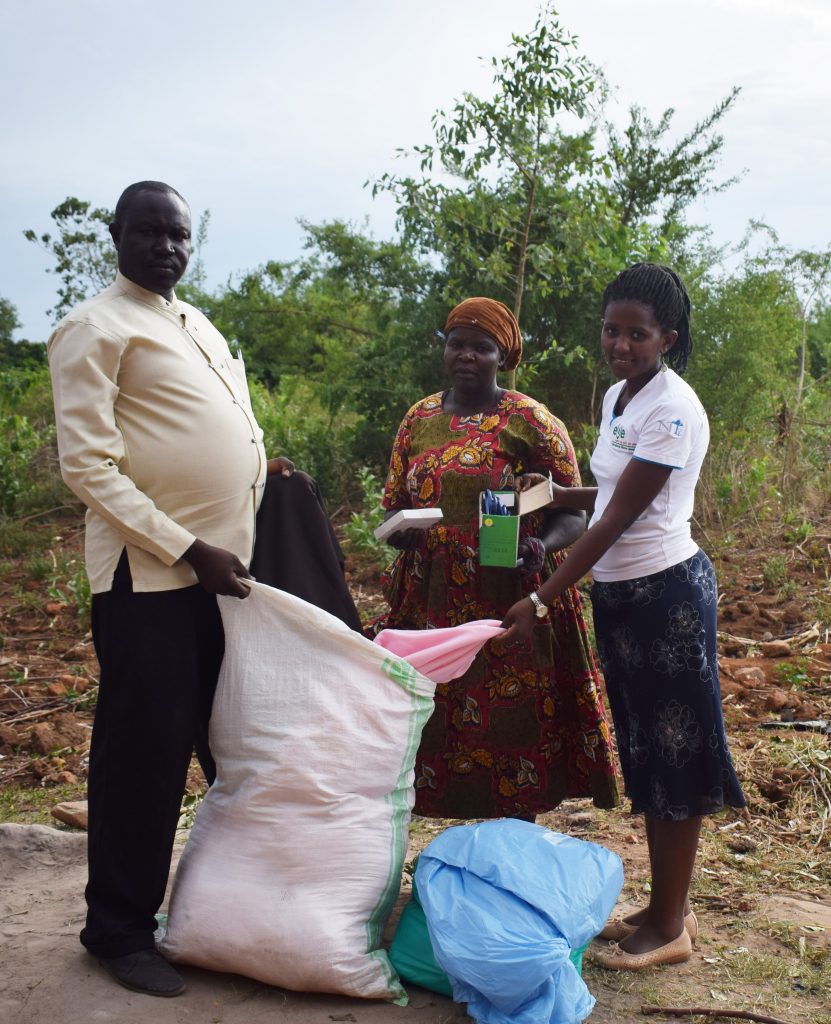
Women’s International Peace Centre hosted a side event on 15th March 2019 on Gender Responsive Social Protection in conflict affected settings focused on feminist peace and social protection for women affected by conflict the margins of the Commission on the Status of Women (CSW) speaking to the priority theme: Social Protection Systems, Access to Public Services and Sustainable Infrastructure for Gender Equality and the Empowerment of Women and Girls.
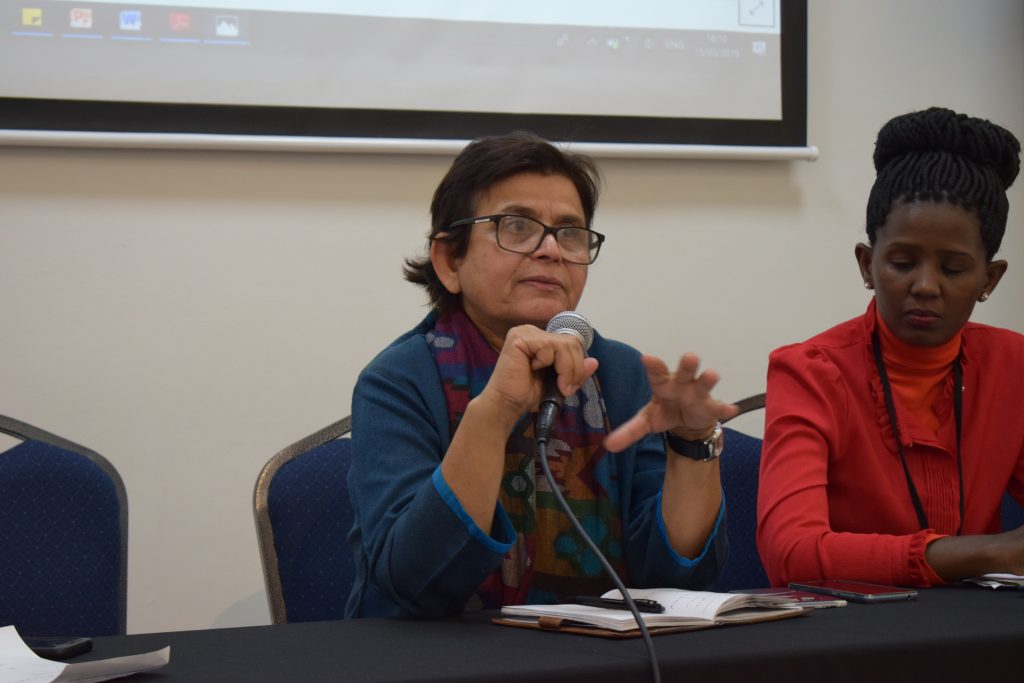
Women leaders from Liberia, Nepal and Uganda shared research findings, lived experiences of women and lessons from programming in post-conflict settings to shed light on the needs and expectations of women and girls affected by conflict in relation to recovering from shocks, building resilience, accessing inclusive gender-responsive public services and true social protection.
The discussion focused on the findings of the study by The Centre/Tilburg, Makerere and Mbarara Universities on the Cost-Benefit of Social Protection Schemes such as cash transfer programmes and post trauma services for the empowerment of women in post-conflict Northern Uganda. The findings were reflected on using the realities in post-conflict, post- Liberia Ebola crisis with specific cases demonstrating the scale of trauma and its impact on the success of cash programmes for women (shared by My Voice My Safety/Ministry of Gender, Liberia) and the challenges of women’s rights and peace building in Nepal, in the absence of knowledge on the centrality of holistic trauma relief (by National Association of Women Human Rights Defenders (NAWHRD) Nepal) with closing reflections from Cordaid Women Peace and Security Advisor.
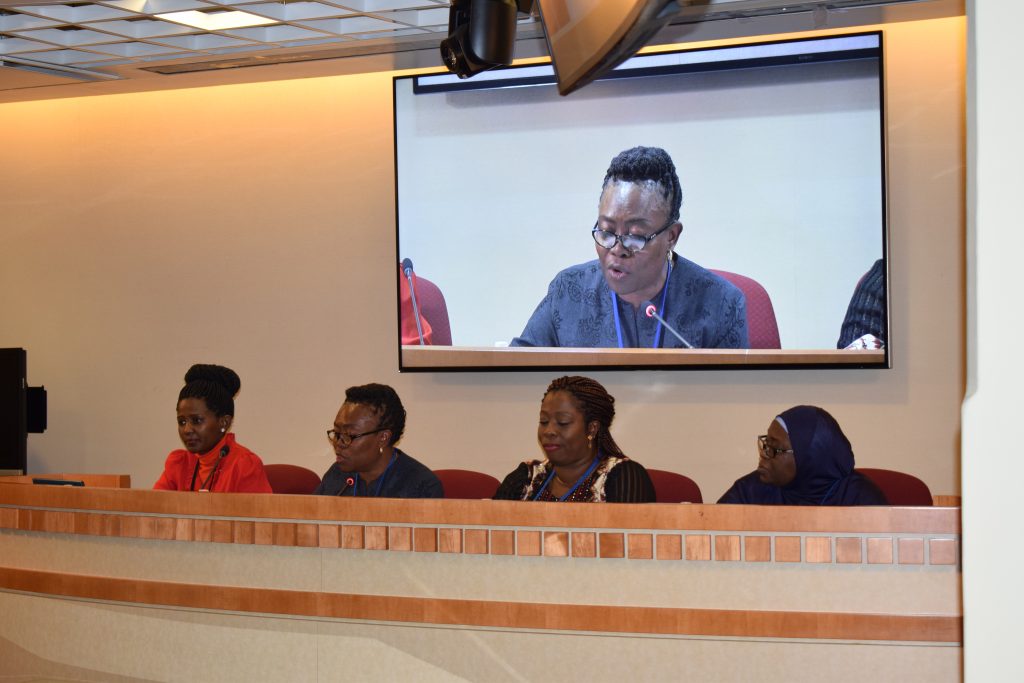
We also organized a joint event on improving social protection outcomes for conflict-affected and grassroots women with Femmes Africa Solidarite (FAS), Action Aid and the Office of the Special Envoy on Women, Peace and Security hosted by the AU Permanent Mission to the UN on 15th March 2019.
In
February, Women’s International Peace Centre
as the Peace and Security thematic lead
of the Gender is My Agenda Campaign (GIMAC) cohosted the 33rd GIMAC
Consultative Meeting on Mainstreaming Gender Equality in African which took
place on the 3rd to 4th February,2019
at the United Nations Economic Commission for Africa (UNECA) in Addis Ababa,
Ethiopia under the theme: “Towards Gender Responsive Durable Solutions to
Forced Displacement”. The theme was aligned with the African Union (AU)
dedication of the year 2019 as the year for “Refugees, Returnees and Internally
Displaced Persons in Africa: Towards Durable Solutions to Forced Displacement”.
This year’s theme sought to tackle the issue of forced displacement in Africa which is largely due to conflict, natural disasters, human rights violations or political instability that has resulted in over 12 million internally displaced persons and an estimated 6.2 million refugees and asylum seekers across the continent. Women and girls who are forcibly displaced by conflict, natural disasters, economic reasons or other causes, face specific threats and diverse forms of gender-based discrimination, violence and human rights violations. Their access to legal protection, safety, gender-responsive assistance, a life of dignity and respect for their rights is often further undermined by factors such as age, disability, previous marginalized social position among others.
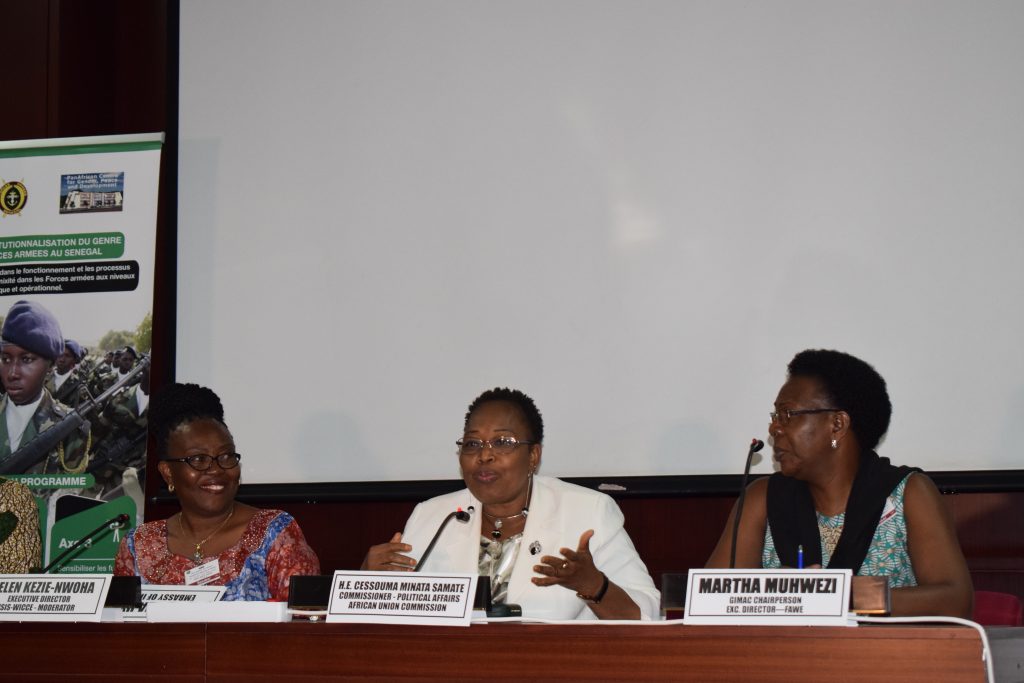
The panel discussions tackled Governance, Peace and Security; Early Warning and Early Response for Prevention of Crises and Forced Displacement, Integration and Return of Refugees and IDPs: registration and documentation processes, discriminatory laws, and inclusion in national development frameworks, Gender-responsive Humanitarian Response: addressing human security needs of IDPs and refugees including physical, psychosocial, legal, health etc, Displaced Women’s Contributions to Durable Solutions to Forced Displacement and Seeking Accountability for Non-implementation of Policy Commitments, Sexual and Reproductive Health and Rights, Education in emergency situations, Accountability for Implementation of Policy Commitments and the Solemn Declaration Index Monitoring Report.
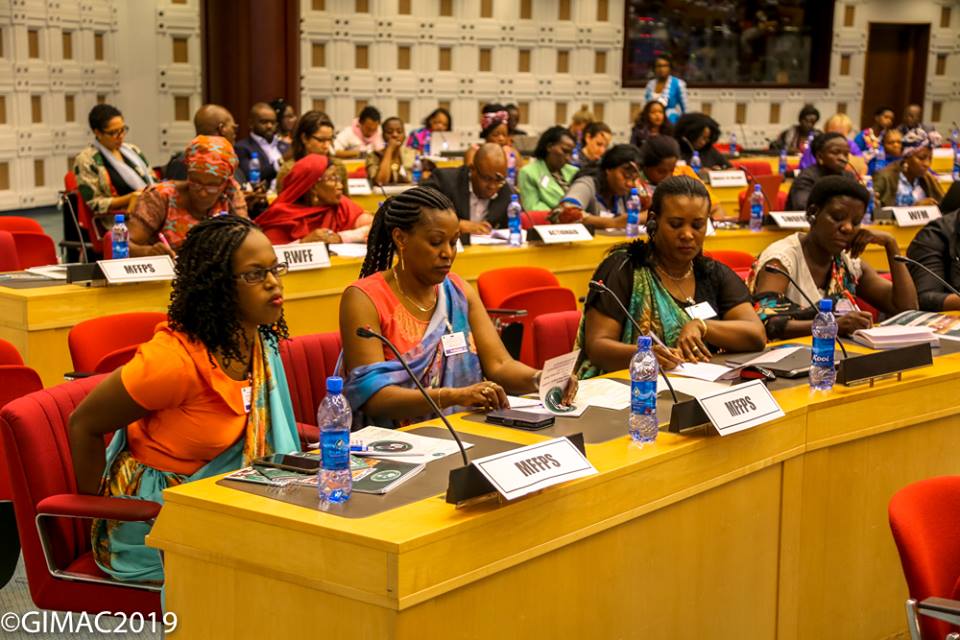
The 33rd GIMAC brought together over 250 delegates from over 30 countries, including representatives of Diplomatic Missions, African Union and United Nations officials, leading Civil Society Organizations (CSOs) on Gender in Africa and other interested groups in advancing women’s rights in Africa.
Drawing from the two-day discussions, participants recommended an increase in public investment in provisioning of gender-responsive services in IDP settlements, Invest in education technology to refugees, IDPs and returnee children, introduce Comprehensive Sexuality Education in Conflicts, engage men as partners in the fight against SGBV and GBV and also encourage judicial institutions to establish mechanisms that will eliminate and fast track sexual and gender-based violence cases especially the inclusion of forensic technology and post-incident trauma care.
The 34th GIMAC will take place from 29th to 30th June in Niamey, Niger under the theme “1st GIMAC Strategic Engagement with AU, RECs and Partners on the AU Summit Theme of the Year.”
On the margins of the 33rd Pre-summit Consultative Meeting on Gender Mainstreaming in the African Union, The Women’s International Peace Centre held a Regional Exchange from 31st January to 1st February 2019 at Azzeman Hotel, Addis Ababa. The Regional Exchange brought together 35 women peace builders from Burundi, South Sudan, Kenya, Uganda sharing information on women’s experiences of conflict/post conflict, promoting women’s rights and capacities and attempts to claim spaces to influence the peace processes. The women reflected on their role in peace building and conflict resolution in each country and at regional level, define a common vision for peace as women of the region and identified, shared priorities and approaches to strengthen the role of women in peace building and conflict resolution, nationally and at regional level.
As we approach the 20th anniversary of resolution 1325 in 2020, documented evidence demonstrates that though peace is more long-lasting as a result of women’s meaningful participation in peace, security and humanitarian processes, that value does not consistently translate into women’s inclusion or participation in peace negotiations and implementation mechanisms. Isis-WICCE/The Centre under its new strategic plan has renewed its commitment to facilitate platforms for women to claim space and participate in national and regional peace processes with impact.
At regional level, the Office of the Special Envoy on Women, Peace and Security has created a continental results framework for monitoring and reporting on the WPS in Africa and the African Union has designated 2019 as the year to work towards durable solutions to forced displacement in Africa, many of which are caused by conflict; this was a critical moment to further reflect on progress in advancing the women, peace and security agenda.
Agenda 2063 presents the vision of the African Union, to build an integrated, prosperous and peaceful Africa, driven by its own citizens and representing a dynamic force in international arena. Aspiration 4 reflects the goal of a peaceful and secure Africa. This is mirrored by the AU’s decision to Silence the Guns by 2020 and in declaring 2010-2020 the African Women’s Decade. 2019 marks nine years into both and provides an opportunity for reflection on the needs, concerns and agency of women on the continent along with efforts to address and amplify the same in line with peace building.
18 years since the adoption of UN Security Council Resolution (UNSCR) 1325, implementation of the Women, Peace and Security Agenda continues to falter. Despite eight resolutions on Women, Peace and Security (WPS) and a strong evidence base for action, women continue to be side-lined. The numbers of women and young women engaging at the highest levels of peace decision-making in their countries and in regional intergovernmental processes continue to fall short; women, young women, and girls face gender-related barriers as well as other obstacles such as (dis)ability, ethnic, and sexual orientation, preventing their meaningful participation in community level peace and security processes; funding for women’s organizations remains dismal while funding for militarized security continues to increase.
2020 marks the 20th Anniversary of UNSCR 1325, providing an important milestone to mobilize around and demand accelerated action on the WPS agenda. In preparation for the 20th anniversary of UNSCR 1325 in 2020, members from the coalition NGO Working Group on Women, Peace and Security facilitated a forum during the October WPS Week that brought together global feminist peace leaders to start the conversation on how we can catalyze on moments ahead of the 2020 anniversary to ensure holistic implementation of the WPS Agenda moving forward
The forum aimed to create the space for women from across the world to network and share learning and experiences; identify key tensions and lessons learned in navigating the challenges of implementing the women, peace and security agenda; and identify key mobilizing opportunities for 2019 and 2020, around which to build collaborations
The annual United Nations Security Council (UNSC) open debate on Women, Peace and Security reviewed the Secretary-General’s most recent report on Women, Peace and Security, and focused on “Promoting the Implementation of the Women, Peace and Security Agenda and Sustaining Peace through Women’s Political and Economic Empowerment” organized by the Plurinational State of Bolivia. This debate was an opportunity for representatives of Member States, Observer States and regional organisations to assess their progress in implementing the Women, Peace and Security Agenda as well as make new commitments towards advancing WPS at local, national and regional levels.
In his intervention, the Secretary-General focused on the importance of securing funding for women’s organisations and expertise, as well as supporting women’s participation in peacebuilding at the local level. Civil society speaker Randa Siniora Atallah, the first Palestinian woman to address the UNSC in official public proceedings, Shared the experiences of women in the Israeli occupation. The most prominent themes of the discussion included the barriers that structural inequality poses to women, the effects of the lack of resources on women’s meaningful participation, and the importance of civil society in future implementation.
Many representatives used their statements to address structural inequalities as an important theme to overcoming obstacles to women’s meaningful participation and how they are linked. The representative of Bolivia highlighted masculinities and patriarchal society as barriers to combating violence and ensuring women’s participation. The representative of Albania highlighted that masculinity was rooted in power. However, the discussion of such inequalities went beyond tangible barriers; for example, the representative of the International Organization of La Francophonie questioned the usefulness of discussing empowerment altogether, suggesting that the concept of women’s empowerment implied a stereotype that women required capacity-building to perform duties, a question which was not mentioned when discussing men’s capacity in peacebuilding. Therefore, the speakers agreed that it is critical to dismantle stereotypes.
Given the increase in civil society speakers that were invited to brief in the UNSC in the past three years, 6 (7%) of the 81 representatives praised this inclusion as progress for women’s meaningful participation. In particular, the representatives of Israel, Mexico, the Netherlands and the United States highlighted the importance of increasing the number of civil society speakers in future UNSC briefings.
Overall, the four pillars of the WPS Agenda, namely participation, prevention, protection and relief & recovery, were generally referenced by representatives. The theme of participation was addressed by 76 (94%) of the 81 representatives, primarily through general affirmations of the importance of women’s participation as a necessary step to accessing economic resources. Prevention and Relief & Recovery were both referenced frequently by Member States, by 55 (68%) and 53 (65%) representatives, respectively. These references were in the context of women’s participation as critical to ensuring peace in pre- and post-conflict societies. Protection was referenced by 48 (59%) Member States, largely within the capacity of providing protection services to women in relation to SGBV.
Being a woman, itself often confronts you with a long and difficult process of emancipation and empowerment. Women and girls living with HIV and AIDS are not only facing the feminist process but are moreover victims of stigma and exclusion, especially in rural areas.
The programme “Livelihood Enhancement for social transformation for women living with HIV&AIDS in Orungo Sub County, Amuria District” was designed to strengthen the livelihood capacity of women living with HIV&AIDS in Orungo Sub-County, Amuria district in Uganda, with special emphasis on the members of Akwenyutu People Living with HIV&AIDS (APHAS). The project has been in effect since in October 2015–June 2018 with the overall objective of the intervention to increase access to sustainable livelihood opportunities for women living with HIV&AIDS. In 2016, Uganda experienced a prolonged drought resulting
The APHAS leadership was responsible for reaching out to the identified households and ensuring that they reach the food distribution venue on the 24th of August 2017. Ever since, APHAS has organized awareness raising sessions through music, dance and drama to over 3000 women and men in different communities. Isis-WICCE has engaged in enterprise development, entrepreneurship training and providing agricultural inputs that included seeds and tools to APHAS members
In partnership with APHAS, Isis-WICCE also organized a Girls’ Leadership Camp at Orungo PrimarySchool under the theme ‘My Body My Power’ from 2nd to 3rd June 2018. The girls’ leadership camp was attended by fifty (50) school girls aged between 9 – 12years from five primary schools; Orungo Primary School, Moruinera Primary School, Ocakai Primary School, Ococia Primary School, and Otubet Primary School. The girls were skilled in leadership, understanding their bodies, discovering their dreams and setting goals.
This year’s Feminist Leadership Institute under the theme “Socio-cultural transformation through the transformative leadership” kicked off with 15 Deputy Chair of the all 13 districts of province 3 and Women Human Rights Defenders in Nepal. This was an opportunity to embed a feminist approach to bring social and cultural transformation, clarify transformatory leadership, enhance the knowledge of bodily integrity, value women work, and identity, develop an understanding on causes and consequences of violence against women from women’s perspective and build agency for Socio cultural transformation.
Our partner, National Alliance of the Women Human Rights Defenders (NAWHRD) recently organized the Feminist Forum in the all 7 provinces of Nepal with the theme “Women’s bodily integrity, labor and identity is a pre requisite of Federal Republic democratic Nepal”. This forum has acted as a common ground where the local level women representatives, women human right defenders, social activists, politicians, journalists and other stakeholders come together to discuss plan and strategize to create enabling environment to ensure women’s rights for the five years tenure at local bodies.
The forum enabled women leaders to understand their role to create enabling environment for every single woman in the country to enjoy their right to bodily integrity, work and identity curbed by the century long patriarchal socialization process. In all these forums, the major difficulty shared by women elected was not receiving proper cooperation from Mayors on their work. It was realized that a lot of women elected are not clear on their role and are having difficulty to assert their rights that are ensured by the constitution. In this regard, NAWHRD, in partnership with Isis-WICCE is working together to provide support to strengthen leadership position of these women elected.
The University of Wisconsin – Madison in partnership with African researchers, Isis Women’s International Cross Cultural Exchange (Isis-WICCE) and Chr. Michelsen Institute (CMI) are conducting a research project that looks at the cost of women’s exclusion and the possibilities for their inclusion in peace processes, peacebuilding, and politics in countries affected by war in Africa. The research project also examines the struggle for women’s rights, legal reform and political representation as one important arena for stemming the tide of extremism related to violence in Africa. Lessons from these experiences have policy implications for ongoing conflicts elsewhere in Africa and the Middle East. The research consortium is based at three research centers in the United States of America (US), Norway and Uganda, including nine experienced researchers. The research is being carried out in Somalia, Algeria, Northern Nigeria, South Sudan and Sudan. The three themes of the research include:
Conflict in Africa has changed in nature and has become more intractable as the causes and solutions are more complex. Today, conflicts manifest further through activities of terrorist groups and election violence. The rise, for example, of Boko Haram in Nigeria, Al Shabaab in Somalia, Ansar Dine in Mali, Al-Qaeda in the Islamic Maghreb (AQUIM) in Algeria and Mali, Movement for Monotheism and Jihad in West Africa in Mali (MUJAO), and other Islamic groups influenced by Salafism and other conservative ideologies, is posing new challenges to these societies. Women often find themselves at the front lines of war, not only as victims but also as prime opponents of some of the more extremist trends in affected countries.
The research is being conducted in five countries in Africa that have experienced or are currently experiencing conflict, to examine the role women have played in peacebuilding at the formal and informal levels and also look at the gains of inclusion and costs of their exclusion. The findings will be composed into case studies and overall comparative findings and a book along with other publications and policy briefs. The project will also hold international conferences and a meeting between women activists and stakeholders in participating countries.
The conference convened a consortium of researchers and women activists working on peace building initiatives in Africa; it also involved those who informed the research. The team of women activists and peace builders joined together in sisterhood to learn from each other what has worked in promoting peace and what gaps remain. Uganda was selected to host the conference because of the country’s long experience in conflict and currently hosting over a million refugees from South Sudan, Democratic Republic of Congo (DRC), Burundi and Rwanda. Despite the silence of guns, Uganda itself is not yet at peace. The conference centered on the following objectives; Facilitate dialogue and learning around women’s participation and role in Peace building. Provide a platform for cross cultural exchange and learning amongst women peace builders in Africa.

“I have been appointed to several leadership positions within the Government of South Sudan in part because of the support and work of Isis-WICCE.”

“In my own teaching on women’s movements these cases are very useful. We urgently need more of this kind of work- I strongly recommend this report and its collaborative strategy as a very good model for other national studies on women’s political participation.”

“They wondered how nine men could sleep with me and I could still talk. The greatest part of the project was enabling us to tell and write our stories. This has been very energising. We have regained our self-esteem and more women in the community want to be open about their HIV status so they can join us to get these benefits. We are no longer reviled by the community and I am now a Local Councillor.”

“The manual on Management of Medical and Psychological Effects of War Trauma is a very useful reference tool for continued response to women survivors issues. Isis-WICCE brought in a team of experts that trained our own team. This was a clear case of south-south cooperation. [The Ministry of Gender] used the research findings to fundraise for our GBV programmes.”

“I went out like a bushfire to respond to the challenges women faced in Eastern Congo. The institute challenged me to see things in a different way and to take action. As a result, I was one of the initiators of COCAFEM (a network of womens associations in the Great Lakes) to respond to the regional challenges.”

“I found myself. The Isis-WICCE-WOREC feminist institute helped me embark on the journey of transformation. It equipped me with practical skills to document cases of different forms of violence against women and analyse them with a feminist lens.”
